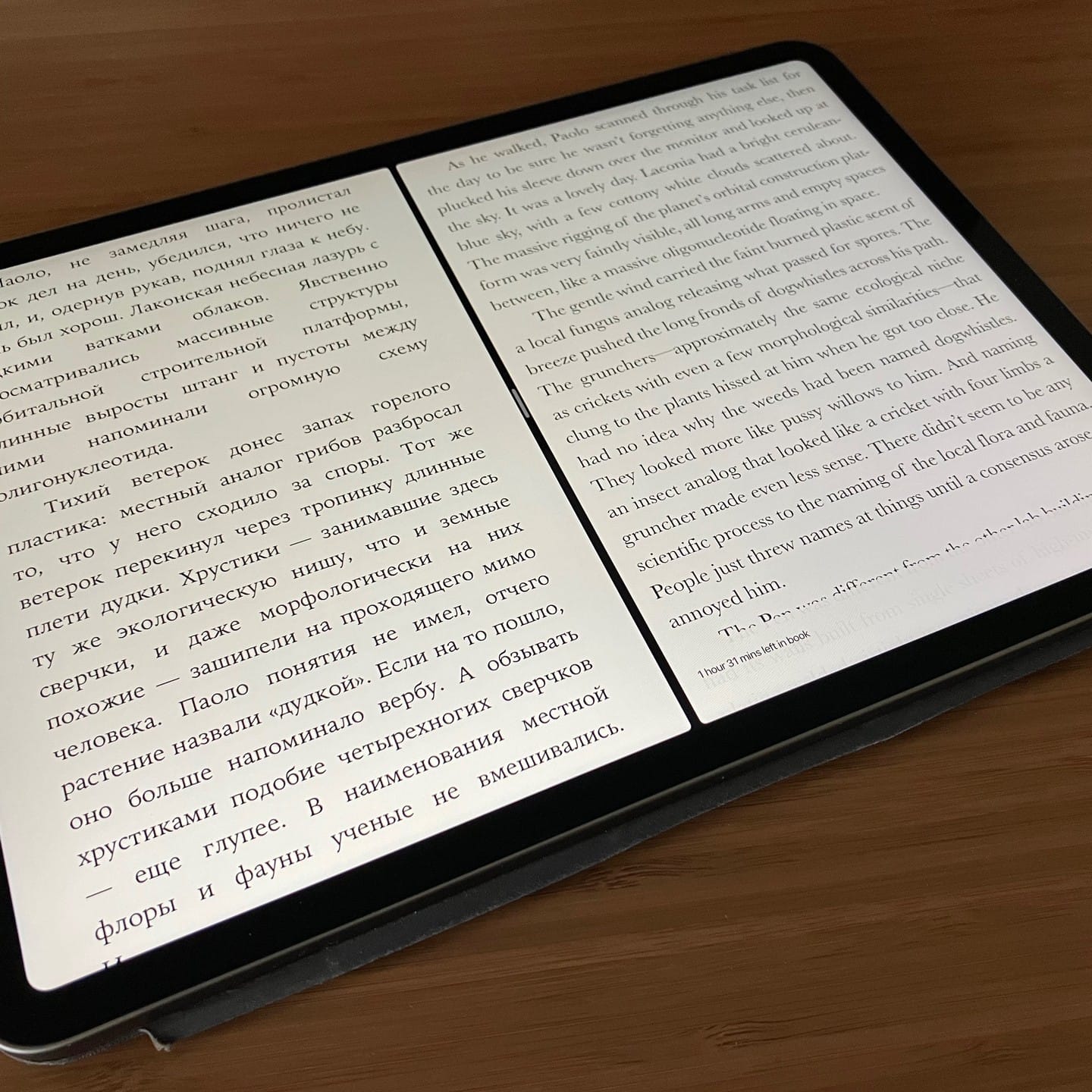Making Bilingual Books with AI and the Classics
There aren't enough bilingual books to support language learning. AI automation and classic literature can help.

I am a serial language learner, and one thing I have found absolutely indispensable for my studies is bilingual reading. Get a book that you know you like that exists in both your native language and the language you are studying, then put them side-by-side and go one page at a time, one paragraph at a time, one sentence at a time ... whatever pace works best for you ... and alternate languages.

Bilingual reading is an amazing tool for language learning, especially for moving beyond what an app or a high school class can get you. And the more I talk to language teachers and learners, the more I get confirmation of that. HOWEVER, those teachers and learners also confirm what I have found myself: there simply aren't enough good bilingual reading resources available.
There are bilingual books available for purchase, even some for online reading, but I have found that there simply aren't many, and they are often not what I want to read (or what I need to read). And they definitely don't come with audio!
So a couples years ago, I started making my own...
It turns out, the reason there are so few bilingual books out there is that it's an incredibly arduous process, and it requires a lot of highly skilled busy work to get the original and the translation perfectly lined up.
Enter Artificial Intelligence...
It turns out that busy work is just the kind of thing that modern AI language models are good at! Not perfect, mind you. But good. And occasionally, very good. And what's left at the end is work that is much more friendly to the humans doing it: checking for occasional errors as you read classic literature!
So I put together an algorithm that helps me line up each sentence in a book with its translation and output the book into a print- or electronic-friendly format. Then a colleague or I just have to double-check the output, clean up a few things here and there, and BOOM... we've got our very own bilingual book! I then send it all through OpenAI's latest and greatest text-to-speech engine so I can generate an accompanying bilingual audiobook to listen to while reading.
To be clear, there is no machine translation and no AI-generated text. Everything comes from the original author and the published translator. It's all high-quality stuff ... if you pick the right book! ;)
Here are some samples — from the public domain, of course — for those of you with experience in Spanish or Russian. Try listening to the audio as you read the printed text! (Note: the "print" is large, as the formatting was originally set for an iPad where the audio was also playing. We're still working on finding the ideal typographical format(s)...)
Bilingual audio sample of The Hound of the Baskervilles, Chapters 1-2, English-Spanish (https://on.soundcloud.com/yZ3BxBxcWsLGp9jRA)
Bilingual audio sample of The Death of a Clerk, Anton Chekhov, English-Russian (https://on.soundcloud.com/xiekitZfD9SCSLbF6)
Look for more about this in the future, as I am working out a plan for how Latchkey can do this at scale. As a former educator and a language nerd, I would love to leverage AI to support people's language-learning efforts, and to make that more of my business efforts.
But, if you are a language learner, or a language teacher, I would love to hear from you! Would you use something like this in your studies? Would you assign it to your students? Are there particular books, short stories, collections, styles, formats you'd be most interesting? In other words, what can I focus on that would help you most?
